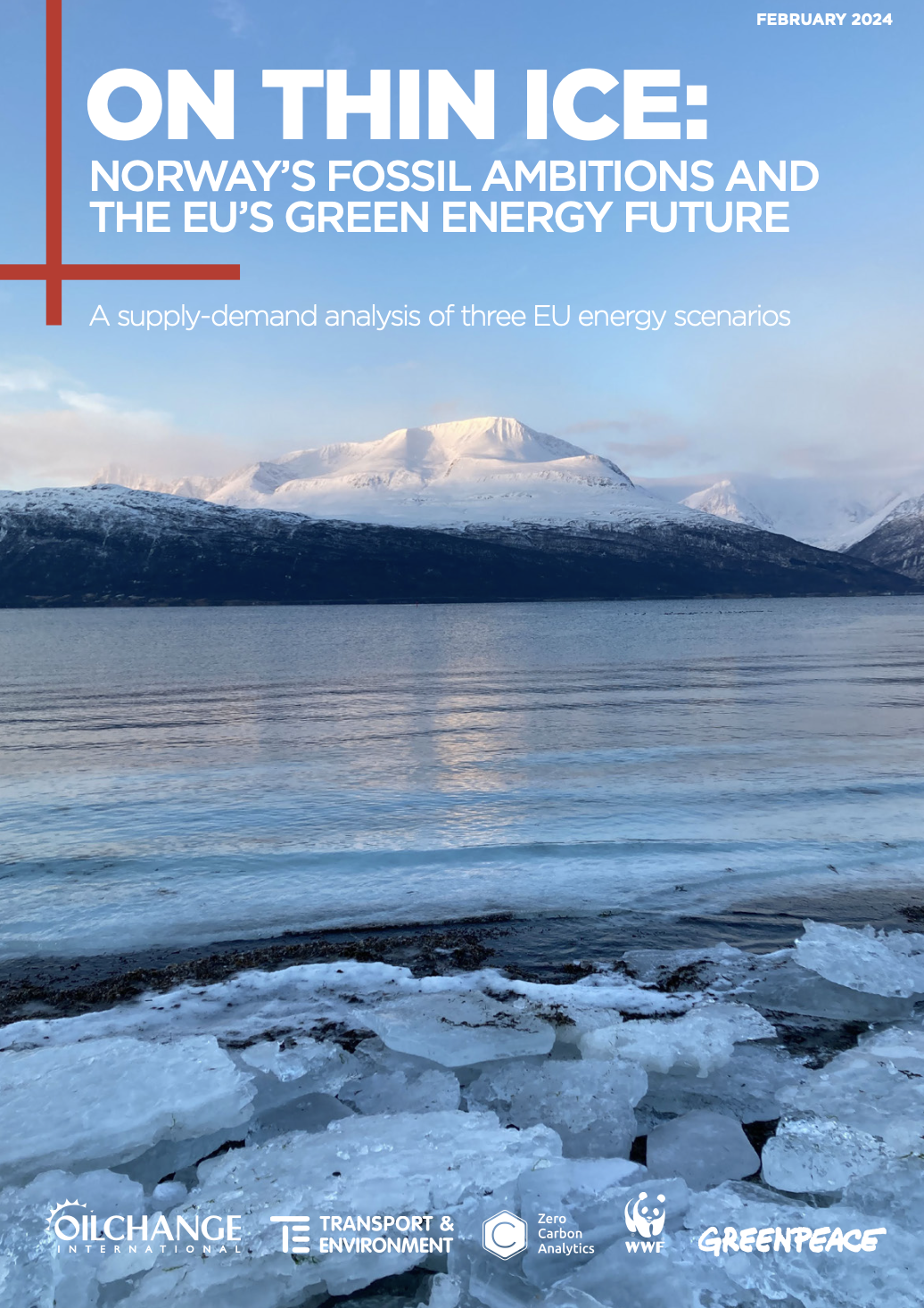
Published by Oil Change International, Transport & Environment, Zero Carbon Analytics, WWF Norway and Greenpeace Norway.
February 2024
A new report finds that the EU’s demand for gas is set to decline significantly in line with climate targets, eliminating the need to expand supply from new fields or infrastructure. In the report, On Thin Ice, the authors model how EU’s gas demand matches future supply in various forecasted scenarios.
It concludes that existing oil and gas projects in the EU and its main supplier countries, along with already contracted volumes, are sufficient to meet declining European demand in scenarios aligned with the Paris Agreement’s 1.5C warming limit. The analysis includes a full phase out of imports of Russian oil and gas.
Under the International Energy Agency’s Announced Pledges Scenario, based on government’s delivering their existing long-term climate targets, the report finds:
- Fossil gas demand in Europe falls 32% by 2030. By 2035, supply from existing projects and contracts exceeds demand, with no need for additional LNG or pipeline imports
- Any new contracts risk significant oversupply of gas, with buyers potentially paying for gas that is not required.
- Oil demand declines 30% by 2030. Production from existing fields of top suppliers peaks then declines, meaning new projects are not required.
The report warns that pursuing expanded oil and gas supply risks either oversupply if climate targets are met, or locking in high emission levels if production is instead exported to other countries, which would create the risk of generating stranded assets. Its findings challenge arguments that increasing oil and gas development and exploration is necessary to meet EU demand during the transition away from Russian exports.
The report concludes that producers such as Norway and the US should stop exploration and development of new oil and gas extraction or export projects. The EU should ensure its policies will accelerate the reduction in oil and gas demand needed to achieve its climate targets.
